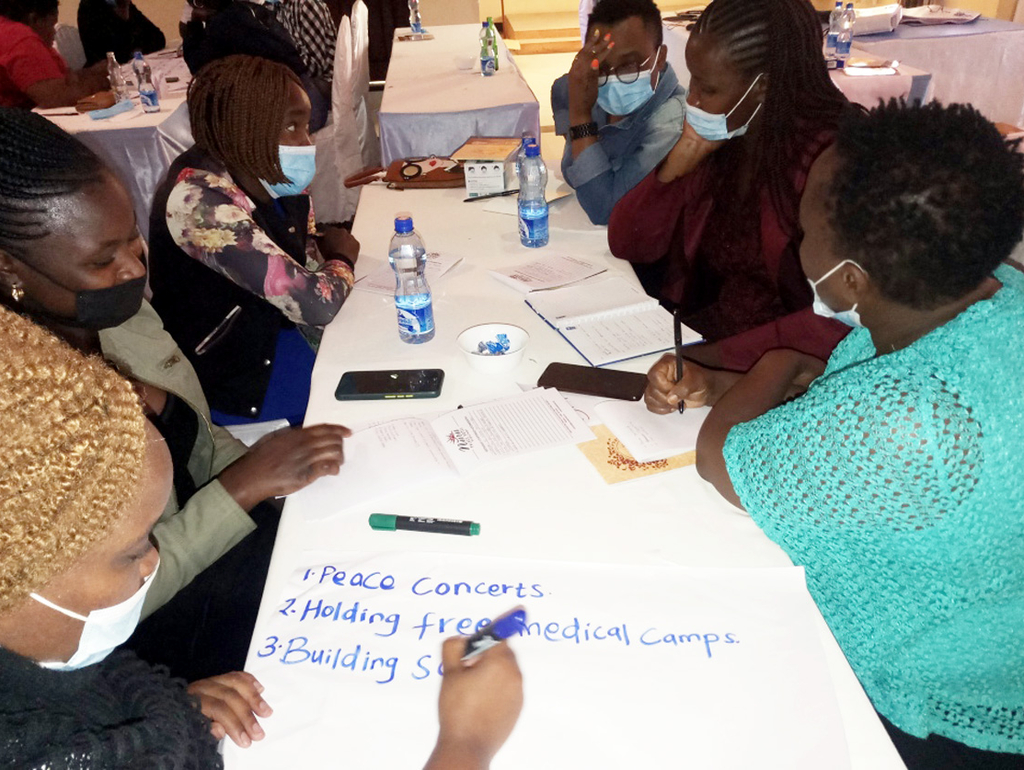About us
PeaceWomen Across the Globe is an internationally active feminist peace organisation based in Bern that supports women in contexts affected by armed conflict in their diverse efforts to build lasting peace.


Struggles over land, resources or political power are the main reasons for the violent conflicts that regularly flare up in certain regions of Kenya. Although many women are active in peacebuilding within their families and communities, they lack recognition, specific knowledge and access to resources and larger networks. This is where our project comes in.
Together with our partner Coalition for Peace in Africa (COPA), we have been implementing projects that strengthen women’s peacebuilding capacities. In 2020, training sessions took place in Isiolo, based on recommendations from participants at a Women's Peace Table held two years earlier. The training sessions consisted of two thematic blocks: processing trauma and seminars on the local implementation of UN Security Council Resolution 1325 on "Women, Peace and Security".
In Isolo, women's and civil society organisations, together with those affected by conflict, addressed the question, "What does it take to achieve peace?” This region in eastern Kenya has been considered a hotspot for years. The causes of the cycles of violence are manifold. They range from structural poverty to conflict over natural resources and land to the freely available firearms that fuel crime and violence. Women are disproportionately affected by gender-based violence.
Women's and peace organisations in Isiolo speak of trauma within their society as a whole. No sustainable peace can be achieved before the causes are addressed and the wounds healed. In these training sessions, participants learned to recognise trauma, to understand the links between trauma and cycles of violence, and to develop strategies for communities to break out of these cycles.
Building on this project, we developed the "Promoting Local Skills for Peace" project with COPA in 2021. It was implemented in Nakuru County in 2021 and 2022 with the aim to empower women in their role as peacebuilders, especially during election campaigns. Nakuru County was chosen as the venue for the project, with a view to the 2022 Kenyan general elections because it is considered a conflict hotspot before elections. While struggles over resources and land also lead to violence there, it is also about political power due to Kenya's ethnicised political landscape.
At the workshops, the participants learned to recognise emerging conflicts at an early stage and developed strategies to enable women to participate equally in politics and decision-making processes. They also analysed the extent to which Resolution 1325 is implemented in Nakuru County.
Finally, the participants learned how restorative justice could be used for conflict transformation. Kenya has been experiencing violence since the early 1990s, also affecting the people of Nakuru. Many participants said that they would forgive the people who had destroyed their property and evicted them from their land over the years if they voluntarily acknowledged their wrongs, asked for forgiveness, and paid compensation, even if the latter were only symbolic.